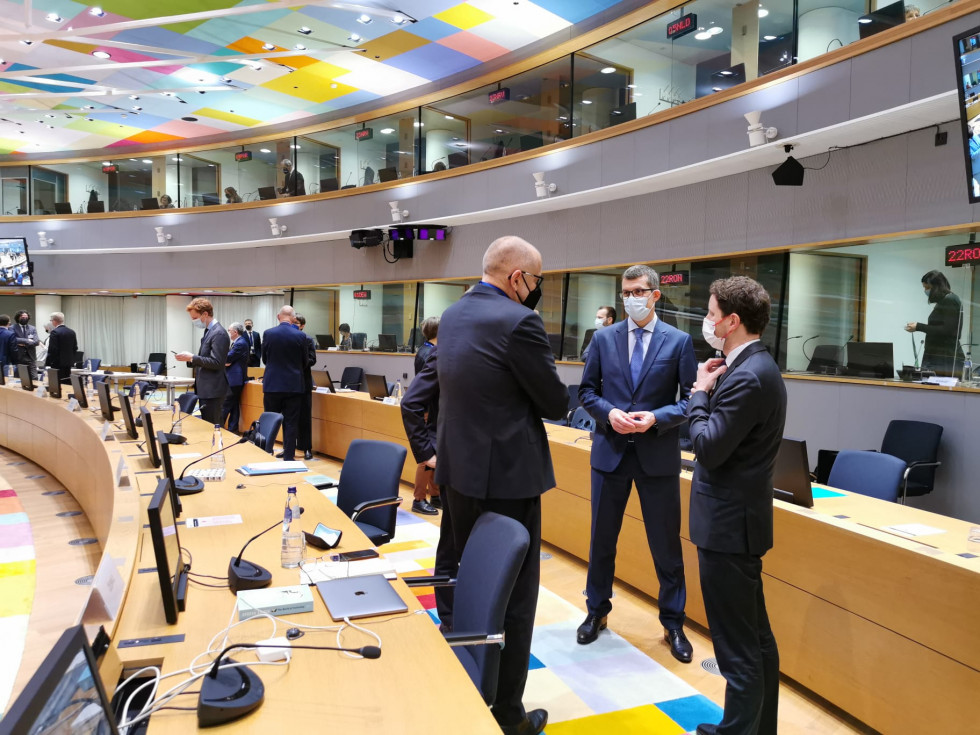General Affairs Council on EU’s better preparedness, response and resilience to crises
- Ministry of Foreign Affairs

State Secretary Dovžan with his colleagues before the General Affairs Council session | Author Ministrstvo za zunanje zadeve
The members of the General Affairs Council approved the draft agenda for the March European Council meeting and agreed on the expected discussion of EU heads of state or government on the coordination of COVID-19 measures, defence and security, the European Semester, and the current foreign policy situation. State Secretary Dovžan stressed that the measures to curb the pandemic should be proportionate to the epidemiological situation, not impeding the functioning of the internal market. He commended the EU’s activities aimed at ensuring global access to vaccines and expressed his support for the proposal to include the Recovery and Resilience Facility in the new European Semester cycle.
The Council members unanimously condemned the decision by the Russian Federation to recognise the “independence” of Donetsk and Luhansk, advocating a unified, rapid and decisive response by the EU. Russia’s actions are a flagrant violation of international law and obligations under the Minsk agreements. In this context, State Secretary Dovžan pointed out that the situation not only calls for the adoption of a package of sanctions against the Russian Federation but also for an actual offer to Ukraine in terms of its EU membership perspective. He also underlined that strengthening the EU’s enlargement policy is the best response to current political and security challenges, as it leads to an expansion of the area of the rule of law, human rights and prosperity in Europe.
Ministers and state secretaries for European affairs went on to exchange views on the final recommendations of the Conference on the Future of Europe. State Secretary Dovžan expressed his hope that these conclusions would be based on citizens’ expectations and that their recommendations would be taken into account. He also stressed that a transparent process and effective communication on the outcomes of the Conference are of particular importance to Slovenia.
The members of the Council also discussed opportunities for improving the EU’s preparedness, response capacity and resilience to future crises. The French Presidency is seeking to further efforts launched during the Slovenian Presidency to improve the mechanisms for effective management of various types of crises. State Secretary Dovžan underlined that particular attention must be devoted to crisis management at the EU level, including to the efforts aimed at consolidating the EU’s crisis resilience, while enhancing the Council’s role in preparing for crises. In this context, he gave an assurance that Slovenia stands ready to support any and every activity that would contribute to systemic and global crisis preparedness at both the EU and national levels.
In the debate on the rule of law in Poland, the European Commission outlined its position on specific challenges in the country, with a Polish representative providing answers and explanations in response to the issues raised by the representatives of respective countries.
Under AOB, Slovakia highlighted the importance of ensuring safety and security for journalists. The Commission apprised the ministers and state secretaries of the outcome of the EU-UK Joint Committee meeting, which was held on 21 February 2022.

